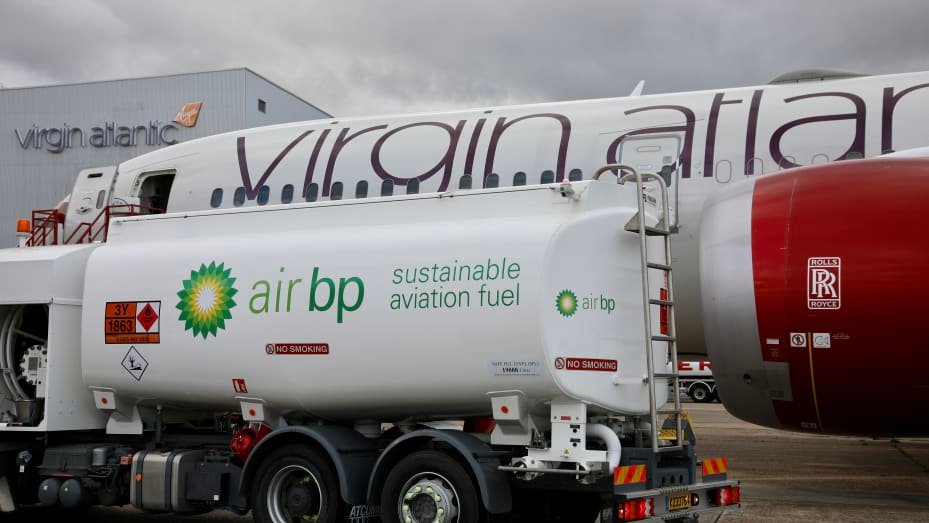
Virgin Atlantic has made history by completing the first transatlantic flight of a large passenger plane powered exclusively by sustainable aviation fuels (SAF). The flight, which operated from London’s Heathrow Airport to New York’s JFK Airport, is a significant milestone in the aviation industry’s efforts to reduce its environmental impact.
The aircraft used for the flight was a Boeing 787, which was loaded with 50 tonnes of SAF. The SAF used for the flight was made from a blend of waste fats and by-products of corn production.
The flight was supported by government funding and was a collaboration between Virgin Atlantic, engine maker Rolls-Royce, and energy giant BP. The flight did not carry paying passengers.
Virgin Atlantic CEO Shai Weiss said that the flight was a “crucial demonstration” of the feasibility of using SAF for long-haul flights. He also acknowledged the challenge of increasing SAF production and said that the airline is working to make SAF more affordable.
Virgin Atlantic founder Sir Richard Branson said that the flight was a “turning point” for the aviation industry and that he is confident that SAF will become a major part of the industry’s future.
The successful flight is a major step forward for the aviation industry, but experts caution that alternative solutions, such as e-fuels and hydrogen, will also be needed to achieve the industry’s emissions reduction targets.


